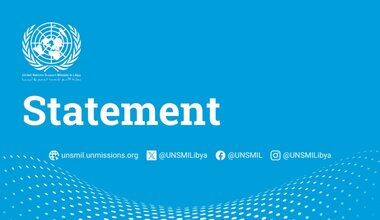UNSMIL and UNESCO Call for Greater safety of Media Workers in Libya
3 May 2015 – The third of May of every year, the world celebrates the World Press Freedom Day. This is day, is a very important day for Libya, a country of journalists and bloggers who played a key role during the 2011 revolution and continue to do so. On this occasion, the United Nations applauds the courage and the commitment of Libya’s media workers and social media bloggers who work under extremely difficult circumstances.
“Journalists in Libya need protection so that they can carry out their work independently and contribute to building peace and unity in the country,” said Martin Kobler, Special-Representative of the UN Secretary-General in Libya. “Impunity for attacks against journalists must be tackled and perpetrators brought to justice. The cases of disappearance need to be fully investigated and any journalist in arbitrary detention released.”
One year ago, on World Press Freedom Day in 2015, the body of a nineteen-year-old student blogger was handed over to his family, following his abduction ten days earlier by an armed group in Tripoli. This case symbolizes the dangers faced by journalists, bloggers and other media workers in Libya. In 2016, the situation remains dangerous for journalists and media workers who face attacks and threats, jeopardizing their ability to report independent, quality information.
In the last year, the United Nations Support Mission in Libya (UNSMIL) has documented 18 cases of serious human rights abuses against dozens of journalists and media workers. In three cases, nine journalists have disappeared and their fate remains unknown. In nine other cases, armed groups abducted journalists and media workers who faced a range of abuses, including torture, while held in arbitrary detention. In other cases, journalists faced death threats, physical attacks, raids and armed attacks on their offices and other forms of intimidation, and media outlets faced armed attack.
The United Nations, led by UNESCO, supports safety for journalists through the global UN Plan of Action on the Safety of Journalists and the Issue of Impunity. In Libya, UNESCO works with Libyan media outlets and professionals to incorporate basic professional and ethical standards into their work and establish transitional frameworks, such as the 2015 Madrid Declaration, as points of consensus in this critical sector.
“Libyan media professionals are taking the lead on media reform”, stated Ghaith Fariz, UNESCO Representative to Libya, adding, “The incorporation of basic professional standards, combined with a conflict-sensitive approach, will assist them to manage the risks they face, in addition to fostering better media practice.”
 United Nations Peacekeeping
United Nations Peacekeeping UN
UN








